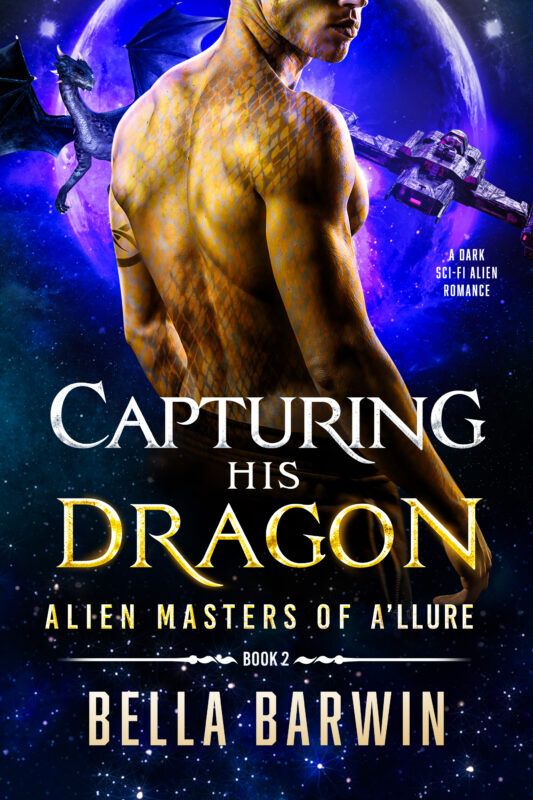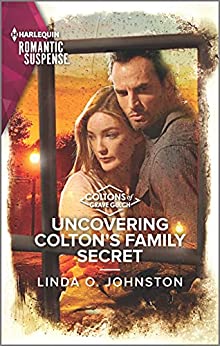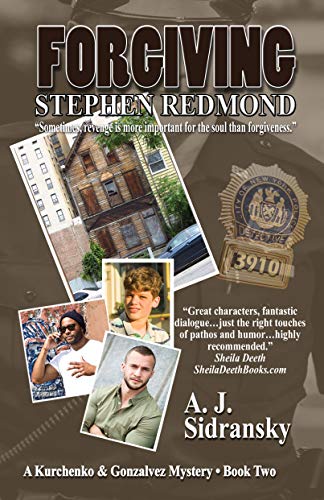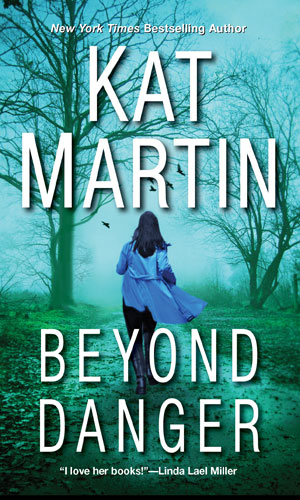Creating a Writing Journal by Kidd Wadsworth
February 25, 2024 by Kidd Wadsworth in category Infused with Meaning by Kidd Wadsworth tagged as Buio, Journaling, kidd wadsworth, Writing journal, YouTube
Creating a Writing Journal
I wanted to stop forgetting appointments and lunches with friends. I wanted to keep track of events days, weeks, months and even years into the future. After 18 months of watching YouTube videos, I discovered a minimalist system that has worked well for me. I’ve been bullet journaling (called Bujo on YouTube) for two years now. It has revolutionized and simplified my life.
The must dos for creating a personal journal are fairly simple:
- The first one to three pages should be an index. It doesn’t have to be fancy. For example:
p.6 January Brain Dump. - Since I create my journal from a blank, spiral bound, notebook (dotted pages), I draw in my own calendars. Each of my journals lasts me about 6 months. Thus, I draw six monthly calendars. I use two facing pages for each month, so the calendars are large enough to hold important events such as dentist appointments or writing dates with my creative buds.
- Immediately following the monthly calendar pages, I use two facing pages to keep track of events that are scheduled more than 6 months out.
- For each month I also create a Brain Dump page. On this page I write all of things I want to remember as they come along. For example, replace the whole house water filter or order a book from interlibrary loan.
- Finally, every week on Saturday evening, I create a weekly spread. I use 4 pages divided length-wise to create space for Sunday-Monday, Tuesday-Wednesday, Thursday-Friday, Saturday-Tasks. On these pages I write down my to-do lists for that day. I use the Tasks section (the second half of the Saturday page) as a way of keeping track of what I want to do each week. The daily to-do lists are easy to create. I review the events scheduled for that week on the monthly calendar. I also refer back to the previous week and make sure that I reschedule any uncompleted tasks. Finally, I check the brain dump page. Are there tasks there that I need to schedule?
And that’s it. Short, simple, and most of all, in one place.
Last year I decided to also create a Writing Journal. When I first started my writing journal, I kept track of how many hours I wrote each day. I no longer do this. I write incessantly. However, if you find that your writing time is being co-oped by your day-job, your family obligations, etc., you may wish to add a time-tracker to help you prioritize and regain control of your time.
My must have pages are:
- Story Ideas – Story Ideas come at me so fast that if I don’t write them down, I’ll lose them. I try to write the story I’ve dreamed up as completely as possible, including characters names, what they look like, etc. Details are incredibly important. Specific snippets of dialogue I also record. I keep paper and a soft 6B pencil by my bed. When a story idea wakes me up at night, I write it down. I NEVER remember dreamed ideas in the morning.
- Great Words and Phrases – These gems provide endless inspiration. Consider: Braiding thoughts, glittering eyes, wobble-bobble, prattle.
- Books on Writing – I write down the titles of books on writing recommended to me by friends and writing professionals. These can be books on craft or the business side of writing. Since I can’t afford to buy all of these books, writing them down helps me save the titles and use inter library loan to obtain a free copy to read. (Typically, these are not fiction books in my genre.)
- Great Quotes – I love great quotes because they often include unique word choices. I always write down the name of the author of the quote. That way I don’t confuse my own good quotes with those of others. Yes, I write down “by Kidd Wadsworth” if I’m quoting myself. And yes, I do keep track of my gems, too.
- Goals – I both set goals and track how long it takes me to actually complete them. I’ve learned that I can write a novel in ~18 months. It usually takes a full day for me to send out a single query letter.
- Index – Unlike my daily journal, most of the pages in my writing journal are unscripted. I do not have monthly calendar pages, or daily to do lists. So an index is unbelievably important. I don’t worry that the items in my writing journal are not well organized. I write down stuff as it happens. I often use my writing journal for taking notes as I am writing, too. I use the Index to help me find everything later. And yes, the index is not well organized either. But it is usually no more than two pages long, so I can read through every line to find that one crucial item I need.
YouTube has proven to be a fantastic reference for me to begin journaling. But I had to disregard a lot of what I saw. I do not decorate my journals. I am not overly picky. If I make a mistake or draw a line in the wrong place, I fix it and move on. I am definitely not a perfectionist. Some of the journals on YouTube are best described as works of art. My journal is a tool. I do the minimum amount of work needed to make my journals useful, and then I get back to writing.
Happy Writing!
Kidd
Read Kidd’s Stories in the Following Anthologies
ME AND MY BRIGHT BLUE PICKUP TRUCK by Kidd Wadsworth
January 25, 2024 by Kidd Wadsworth in category Infused with Meaning by Kidd Wadsworth tagged as Big Trucks, New York, Texas
ME AND MY BRIGHT BLUE PICKUP TRUCK
by Kidd Wadsworth
I’d been invited to a posh dinner to honor director Martin Scorsese. I decided to drive to ‘The City.’ My friend recommended that I take the Lincoln Tunnel. Twilight found me approaching the entrance; I glanced at my gas gauge.
I was young and naive, but I wasn’t worried. “Those New Yorkers are smart,” I said to myself. “I bet they’ve built a gas station right at the entrance of the tunnel.”
Nope, no gas station.
But I wasn’t worried. “Those New Yorkers are smart,” I said to myself, “I bet that tunnel is wide with room on both sides to pull over if you run out of gas.”
Nope, earthworms build wider tunnels.
I may have prayed.
I made it through, wheels still turning, spark plugs still firing. “No need to worry,” I thought. “With all these cars there must be tons of gas stations on the isle of Manhattan.”
Nope.
I looked and looked all the way to the hotel where the dinner was being held. I breathed a sigh of relief when I saw the valets. I knew they could help me.
“Hi, do you happen to know where I can find a gas station?”
The valet rubbed his chin. He looked at the ceiling. Then he yelled over to his bud. “Hey, Rodrigo you know where this lady can find some gas?”
“Dude, I ain’t got no car.”
The valet promised he’d have an address for me when I came back for my truck.
The event was fantastic, lots of stories, great food. As my first introduction to The City, I was impressed. When the dinner ended, I thanked my host and took the elevator to P1, the parking garage.
Yes, my wonderful valet had an address. I drove through dark streets—one eye on the gas gauge—until I found a line of cars waiting to fill-up at the world’s smallest gas station. I had to do a seventeen point turn to get my truck next to the pump. I breathed a sigh of relief. Never have I been so glad to see my gas gauge read FULL.
I asked the attendant. “How do get back to the Lincoln Tunnel?” Half a page of directions later—remember this was before GPS—I headed across The City. It was 2 AM and I was a bit confused. Wasn’t this the city that never slept? And here I was on a very famous street, Broadway, and everything was so quiet.
Until . . .
I came to this place as bright as day. I’ve never seen so many lights—and people, and noise, and guys working on the sewer system in the middle of the night—and I wasn’t moving, not an inch. You see, it was me, in my bright, blue pickup truck and 10,000 yellow cabbies! Those cabbies weren’t giving me any room.
I tried to be polite. Eventually, I realized I was southern in name only. If truth be told very few battles of the Civil War were fought in Texas. Texans aren’t really southern, we’re Texan, and that’s a whole different breed. For example, southerners pride themselves on being polite. Texans respect gall. I looked at those pathetically small cabbies. Then I looked at my BIG, bright, blue pickup truck. The Texan in me figured I had the right of way. I took my foot off the brake.
What do you know? Those New Yorkers are mighty smart. Why they let me pass. Such nice folks.
I left the lights behind still looking for the tunnel. Once more, and only once more, I gave those New Yorkers the benefit of the doubt. “I bet they have a great big sign pointing to the entrance of the Lincoln Tunnel.” (Just so you know, in Texas the signs are HUGE.)
Nope, they had this little sign two feet off the ground with one bulb illuminating painfully small letters: Lincoln Tunnel –>
Really?
Yes, I made it home, but I realized something. When I go to a foreign country, I’ve gotta know the rules. I can’t assume stuff like—where there are cars, there are gas stations.
So, I asked myself, what would I tell a New Yorker going to Texas?
Here are the things you need to know.
- It’s legal to carry a gun.
- It’s illegal to be a vegetarian.
- Everyone still dresses up to go to church. So bring your lizard skin cowboy boots.
Some of Kidd’s stories are in the following anthologies
INTERIOR DIALOGUE by Kidd Wadsworth
December 25, 2023 by Kidd Wadsworth in category Infused with Meaning by Kidd Wadsworth tagged as ambiguity, body movement, humor, interior dialogue
My main issue with fiction, written in first person, is interior dialogue. Often interior dialogue is self-serving—or rather author-serving. Take this passage from The Red Queen by Victoria Aveyard:
I’m an accident. I’m a lie. And my life depends on maintaining the illusion.
The character is talking to herself to explain stuff to the reader. This pops me out of the story. It’s unreal dialogue. Very few of us have such cogent thoughts. Instead, our thoughts are entwined with our actions. Our body, our emotions and our thoughts are jumbled together. I’ve attempted to rewrite this passage below.
I tried not to let her see how much I hated her, but I could barely breathe.
I get it. I’ve got to lie for you.
My hand clinched itself into a fist.
Interior dialogue also often lacks ambiguity. People neither move nor think in a straight line. Our writing should mimic that. The reason it often doesn’t is that our real thoughts, like real dialogue would be uninteresting and/or confusing. As readers we want the condensed version. If you’ve ever seen a transcript of an FBI wire-tap you understand. I feel so sorry for those FBI agents. Most of that stuff—a good 99%–is boring and repetitious.
“Should we a . . . a . . . go to Denny’s or—”
“I hate Denny’s. Don’t forget your wallet.”
“Ok, ok, maybe . . . what’s that place that’s orange on the inside?”
“All I’m saying is, I’m not paying for your ass. You mean Panera?”
Of course, this enlightening conversation is taking place while the agents are listening for details about the next bombing attempt. It could be hours before they hear anything remotely interesting like:
“Did you pick the stuff up?”
So, obviously, we can’t write dialogue exactly the way it occurs in real life. Not if we want anyone, except our moms, to read our stories. But when interior dialogue is too polished, it stops being real.
Most interior dialogue also lacks humor. Humor inserts itself into our lives frequently. Yet, because our characters are constantly saving the world, running for their lives, or at least obsessing over which lipstick will make the love-of-their-life finally notice them, we delete the humor. This is a mistake. Humor breaks the tension, but more importantly, if our character is still willing to laugh, especially at themselves, it can draw the reader in, simultaneously making our character more likeable and more believable.
Finally, interior dialogue tends to suffer from monotony. In other words, the character repeats herself. Again, from The Red Queen:
I can’t do anything but steal.
And
I’m a coward.
I am really tired of hearing this character put herself down. These two thoughts are excellent candidates for humor. Consider my attempt:
I’m a coward and a thief. Across the room I spot my next mark. Tall and clean—obviously, he can afford water for a bath. Well at least I’m not a cowardly thief. My fingers are literally itching. I hope he doesn’t smell me coming.
So, here’s the list:
- No info dumps.
- Entwine the dialogue with body movement.
- Add a smidgeon of confusion or exhaustion or forgetfulness.
- Add humor.
Happy Writing!
Kidd
You’ll find some of Kidd’s stories in the following books.
THE CHOICE
September 25, 2023 by Kidd Wadsworth in category Infused with Meaning by Kidd Wadsworth tagged as dreams, Flying
This is a true story.
Two nights ago, I had a dream I could fly. I opened my arms wide, pulled the wind toward me and felt my feet lift off the ground. It was glorious. With my engineering-trained mind I quickly sought practical applications.
First, my husband and I went out at night—so the neighbors wouldn’t see—and I picked all of the apples, red and ripe, off the top branches, dropping them one by one into my husband’s waiting hands. Next, I inspected the flat portion of our roof. Never buy a house with a flat roof. We worry about that 10 x 10 section constantly. Then I decided to fly out to Seattle to visit my son. But about three minutes into the flight—I was traveling at approximately 10miles/hour—I realized that Seattle is 3000 miles away. That’s a 300 hour flight.
Hearing a roar overhead, I decided to fly into the clouds and hitch a ride on a passing jumbo jet.
NO!
Those things travel at 600 miles/hour. My head would get blown off.
I suppose even flying has its practical limitations.
In the final image of the dream, I was in the future and my son had a three-year-old daughter. I had volunteered to watch her for the day. As the scene opened, we were gleefully jumping on my son’s bed. Then I taught her to fly. “Open your arms, like this.” I opened my arms, “and pull the wind to yourself.” How quickly she learned.
“Flying is so much fun, Nana.”
When I woke, I immediately understood the dream. I can do the impossible. The choice is mine.
Last night, I had a second dream. I was agitated and rushed. I slipped the car into reverse, stomped down on the accelerator and backed out of the parking space so recklessly that I plowed into the car behind me one row over. Crying and distraught, I called the police and reported the accident. My silver Chevy Malibu—a huge tank of a car with bench seats and a V8—was undamaged. The next morning, again jittery and overwrought by . . . whatever . . . I backed out and hit another car. That night I hit a third vehicle in exactly the same way, this one belonging to Omar, a guide who had been helping me by showing me around town. “You totaled my car!” He grabbed his head in distress. “How am I going to get to work!”
I was taken before a judge.
“I’m so sorry. I was stupid. This is all my fault.”
She took away my driver’s license.
“I don’t know why I did this. I was just so upset and angry.”
I was sentenced to counseling. “You could have hurt someone,” she said. “When I’m satisfied you’re no longer a danger, I’ll give your license back.”
I woke. Immediately, I understood the dream. I am powerful. I can use my power to destroy things and hurt the people I love.
The choice is mine.
My power is my creativity. Most importantly my power is my writing. With my stories I can reveal truth to those who would hide from it. I can comfort the soul of a hurting person. I can unveil oppression. I can say, I understand, and I stand with you. With my stories I give my heart word-wings to fly where I cannot go. And on these wings my readers soar to longed-for futures.
Or I can ravage tender souls with hate and lust and violence.
The choice is mine.
~ Kidd Wadsworth
Kidd’s Stories are in the following anthologies
My Search for Great Adjectives by Kidd Wadsworth
August 25, 2023 by Kidd Wadsworth in category Infused with Meaning by Kidd Wadsworth tagged as adjectives, Dune, Frank Herbert, Worldbuilding, writing
Why was the book Dune by Frank Herbert so successful?
Most people would probably say world-building. Herbert created a compelling futuristic world of suspensor lamps, stillsuits and blue-eyed spice-drugged Fremen, and in it he placed the unassuming Paul Atreides, the character every one of us, male or female, identifies with. But let’s dig a deeper, let’s “get into the weeds” as one of my professors used to say. I’m talking adjectives here. And yes, Herbert was a master.
“The woman was a witch shadow—hair like matted spiderwebs, hooded ‘round darkness of features, eyes like glittering jewels.”
I LOVE THIS SENTENCE!
“witch shadow”
She’s more than evil, she’s powerful. Or is she? Witches, even in the future, only have the power we give them. So, who gave her power? Ut oh, it turns out his mother did. She mated with his father on command. But it gets worse. His mother disobeyed the witch.
“matted spiderwebs”
This phrase feeds on the first. Spiderwebs hide in corners and under chairs. Nearly transparent, they are easy to miss. These words aren’t about her hairstyle. Herbert is telling us that her web, and his mother’s disobedience, has caught something—and his name is Paul Atreides.
“glittering jewels”
I confess. I stole this phrase. Yup. I used it to describe the eyes of a dragon. It screams EVIL.
Herbert’s wonderful adjectives aren’t limited to his prose. Consider some of the titles of his books:
The Godmakers
I like this one because it plays on the well known “Kingmakers.” I guess things are different in the future. They don’t just make kings, they make gods.
Whipping Star
I’ve got read this book. What the devil is a “Whipping” star?
My husband is an Alabama boy. He grew up on the gulf coast. His senior year, he and three others went stag to homecoming. On the way home they drove down to the beach to park and watch the sun come up. Not yet legal, they nonetheless were well supplied with beer. They popped a few open, loosened their ties, kicked off their shoes . . .
Waves, coming in the open car windows, woke them up. Nope, the car didn’t make it out alive.
Often my adjectives are like the story you just read—painfully predictable. A great book—or a great poem—helps me splash my readers in the face with borrowed gems. I am also learning to link my adjectives as Herbert did with “witch”, “shadow”, and “spider-web”, to create a picture within a picture. We not only know what the woman looks like, we know she is of the dark, moves in the dark, and more dark is coming.
Happy Writing!
Affiliate Links
A Slice of Orange is an affiliate with some of the booksellers listed on this website, including Barnes & Nobel, Books A Million, iBooks, Kobo, and Smashwords. This means A Slice of Orange may earn a small advertising fee from sales made through the links used on this website. There are reminders of these affiliate links on the pages for individual books.
Search A Slice of Orange
Find a Column
Archives
Featured Books
CAPTURING HIS DRAGON: A Dark Sci-Fi Alien Romance
She isn’t what she seems…
More info →UNDERCOVERING COLTON’S FAMILY SECRETS
Coming face-to-face with her past…
More info →BEYOND DANGER
New York Times bestselling author Kat Martin brings page-turning suspense to a tale of secrets and passions turned deadly . . .
More info →THE VISCOUNT’S SEDUCTION
An Irish lady from a scandalous family gets a chance at a Season in London and an opportunity for revenge, but her schemes stir up an unknown enemy and spark danger of a different sort in the person of a handsome young Viscount.
More info →Newsletter
Contributing Authors
Search A Slice of Orange
Find a Column
Archives
Authors in the Bookstore
- A. E. Decker
- A. J. Scudiere
- A.J. Sidransky
- A.M. Roark
- Abby Collette
- Alanna Lucus
- Albert Marrin
- Alice Duncan
- Alina K. Field
- Alison Green Myers
- Andi Lawrencovna
- Andrew C Raiford
- Angela Pryce
- Aviva Vaughn
- Barbara Ankrum
- Bethlehem Writers Group, LLC
- Carol L. Wright
- Celeste Barclay
- Christina Alexandra
- Christopher D. Ochs
- Claire Davon
- Claire Naden
- Courtnee Turner Hoyle
- Courtney Annicchiarico
- D. Lieber
- Daniel V. Meier Jr.
- Debra Dixon
- Debra H. Goldstein
- Debra Holland
- Dee Ann Palmer
- Denise M. Colby
- Diane Benefiel
- Diane Sismour
- Dianna Sinovic
- DT Krippene
- E.B. Dawson
- Emilie Dallaire
- Emily Brightwell
- Emily PW Murphy
- Fae Rowen
- Faith L. Justice
- Frances Amati
- Geralyn Corcillo
- Glynnis Campbell
- Greg Jolley
- H. O. Charles
- Jaclyn Roché
- Jacqueline Diamond
- Janet Lynn and Will Zeilinger
- Jaya Mehta
- Jeannine Atkins
- Jeff Baird
- Jenna Barwin
- Jenne Kern
- Jennifer D. Bokal
- Jennifer Lyon
- Jerome W. McFadden
- Jill Piscitello
- Jina Bacarr
- Jo A. Hiestand
- Jodi Bogert
- Jolina Petersheim
- Jonathan Maberry
- Joy Allyson
- Judy Duarte
- Justin Murphy
- Justine Davis
- Kat Martin
- Kidd Wadsworth
- Kitty Bucholtz
- Kristy Tate
- Larry Deibert
- Larry Hamilton
- Laura Drake
- Laurie Stevens
- Leslie Knowles
- Li-Ying Lundquist
- Linda Carroll-Bradd
- Linda Lappin
- Linda McLaughlin
- Linda O. Johnston
- Lisa Preston
- Lolo Paige
- Loran Holt
- Lynette M. Burrows
- Lyssa Kay Adams
- Madeline Ash
- Margarita Engle
- Marguerite Quantaine
- Marianne H. Donley
- Mary Castillo
- Maureen Klovers
- Megan Haskell
- Melanie Waterbury
- Melisa Rivero
- Melissa Chambers
- Melodie Winawer
- Meriam Wilhelm
- Mikel J. Wilson
- Mindy Neff
- Monica McCabe
- Nancy Brashear
- Neetu Malik
- Nikki Prince
- Once Upon Anthologies
- Paula Gail Benson
- Penny Reid
- Peter J Barbour
- Priscilla Oliveras
- R. H. Kohno
- Rachel Hailey
- Ralph Hieb
- Ramcy Diek
- Ransom Stephens
- Rebecca Forster
- Renae Wrich
- Roxy Matthews
- Ryder Hunte Clancy
- Sally Paradysz
- Sheila Colón-Bagley
- Simone de Muñoz
- Sophie Barnes
- Susan Kaye Quinn
- Susan Lynn Meyer
- Susan Squires
- T. D. Fox
- Tara C. Allred
- Tara Lain
- Tari Lynn Jewett
- Terri Osburn
- Tracy Reed
- Vera Jane Cook
- Vicki Crum
- Writing Something Romantic
Affiliate Links
A Slice of Orange is an affiliate with some of the booksellers listed on this website, including Barnes & Nobel, Books A Million, iBooks, Kobo, and Smashwords. This means A Slice of Orange may earn a small advertising fee from sales made through the links used on this website. There are reminders of these affiliate links on the pages for individual books.





















































